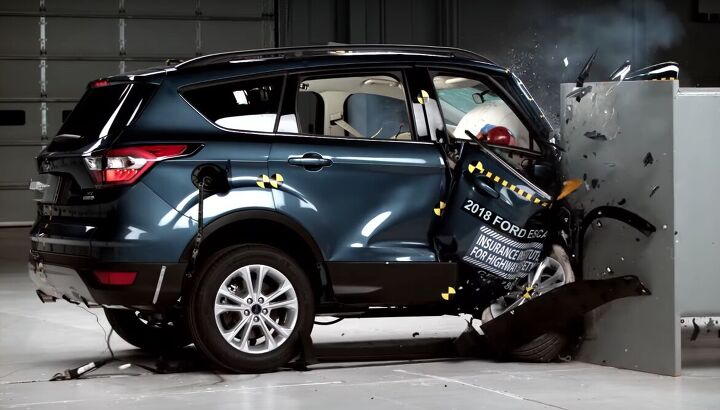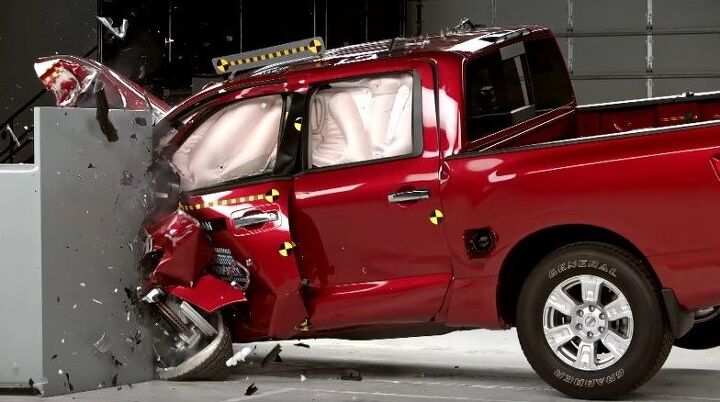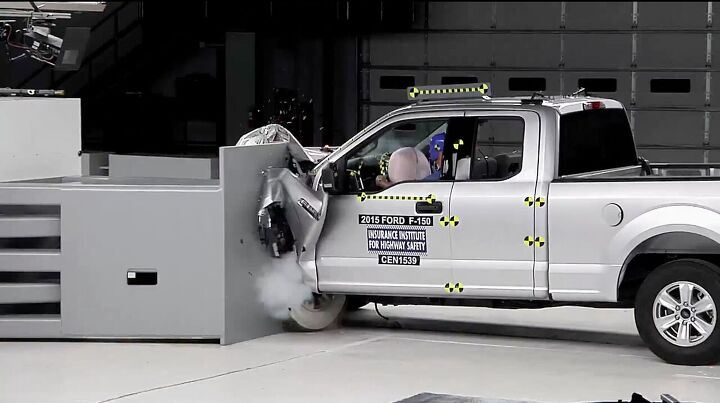#SmallOverlap
Latest IIHS Crash Tests: Throwing Small Crossovers at the Wall, Seeing What Sticks
The Insurance Institute for Highway Safety (IIHS) has released new ratings for seven small utility vehicles. For the most part, the pint-sized crossovers performed amicably. However, none of the models were worthy of the group’s coveted “Top Safety Pick Plus” award due to subpar headlamp performance, while a couple of models were found structurally deficient after being confronted with the dreaded small overlap crash test.
Ford’s Escape received an overall poor rating and came away from the test with the worst structural deformation within the group. Senior IIHS research engineer Becky Muller noted that Ford reinforced the diver’s side of the vehicle for the 2017 model year but negated extending that courtesy to passengers.
“Disparities like this one are why we decided to formally rate the passenger side in the small overlap test after five years of evaluating only the driver side,” she explained. “Manufacturers shouldn’t shortchange protection for front-seat passengers.”
Pesky Small Overlap Crash Test Sinks Another One
The Insurance Institute for Highway Safety’s small overlap crash test — the bane of every automaker’s existence — has prevented another pickup from achieving high marks.
This time, it’s the 2017 Nissan Titan — a full-size pickup struggling to stand apart from its domestic competition after recently undergoing its first redesign in 13 years.
In IIHS testing, the Titan crew cab, like many of its rivals, folded under pressure during the small overlap test. That keeps the truck out of the running for an ad-worthy Top Safety Pick rating.
For $58 You May Pass the IIHS Small-overlap Crash
Metal bars welded to the Ford F-150 Super Crew in front and behind its front wheels that helped it pass the Insurance Institute for Highway Safety’s notoriously difficult small-overlap crash cost roughly $58, Automotive News is reporting.
It was revealed last week that the low-cost part was left off of regular- and extended-cab models, prompting the insurance organization to retest the F-150 models and revise their ratings much lower than the original test.
According to Automotive News, Ford stopped short of saying that it would include the low-cost parts on the regular- and extended-cab versions of the truck, but said it would install “countermeasures” to improve crash performance. The regular and extended cab comprise about 5 and 25 percent of overall F-150 sales respectively.
While You Were Sleeping: Audi RS3 Sedan, Toyota HiLux Reveal and Cameras Are Everywhere
Looking south of the A4 in Audi’s current range of motors, the hottest vehicle in its North American lineup is the current S3. Those of us west of the Atlantic don’t get to enjoy the turbocharged five-pot RS3 Sportback. Thankfully, Theophilus Chin is on the scene to digitally imagine our Ingolstadt desires with this compromise – the RS3 sedan.



















Recent Comments